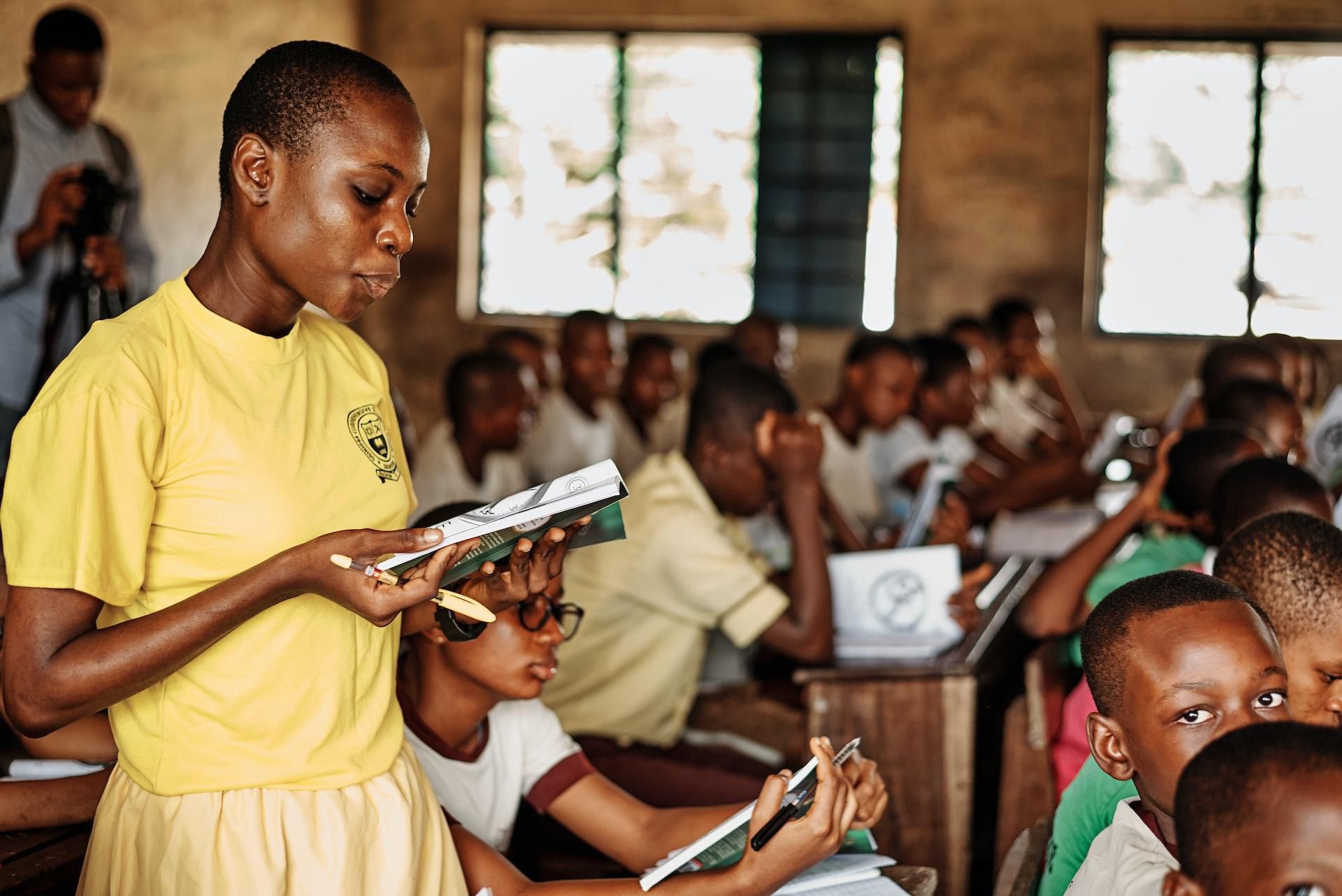The Federal Government recently announced the launch of a revamped national curriculum for secondary schools; junior and senior school students, introducing subjects such as journalism, programming, artificial intelligence, programming modules such as robotics & introductory Python, including fact-checking.
On paper, this looks like a bold step in the right direction. After all, the world is moving fast in becoming a global village and students need 21st-century skills to compete globally.
But the big question remains: is Nigeria truly prepared for this? Or will this new curriculum end up like many other government projects announced with excitement but won’t see the light of the day or be forgotten without real impact?
ALSO READ: 8 Practical ways to access affordable education in Nigeria
What should be in place for the new curriculum to work?
For this new curriculum to be more than just words on paper or good music to the ears, the Federal Government needs to put the following things in place:
1. Well-Trained Teachers
It’s not enough to add programming or artificial intelligence to the curriculum. Do we have professional teachers who can teach these subjects? Many Nigerian teachers are still struggling with operating a computer, not to mention understanding basic ICT skills. The government must organise intensive training programs for teachers across the country for effective transfer of knowledge and skills to the students.
However, equipping the teachers with the skill set and knowledge can be undermined if the teachers are not catered for. Teacher incentives and welfare issues must also be reviewed and addressed. Poor salaries (late and no payment of salaries), frequent strikes, and low morale have long lingered in Nigeria’s education system.
If the FG doesn’t fix these welfare challenges, even the best-trained and qualified teachers may lack the motivation to deliver quality lessons, and the new curriculum could fail before it even begins.
EXPLORE: 3 surprising countries with no universities – And why
2. Functional Computer Labs and Internet Access
A school without computers cannot teach programming or AI, not to think of robotics & Python. Many public schools across the country lack functional computers, computer labs, while most schools are often faced with power outages and no internet. The government must invest in modern computer labs, reliable electricity, and internet access in both urban and rural secondary schools to enable this new curriculum to thrive.
But without equal investment, this move could widen the gap between rural and urban schools. Urban private schools, which most of them already have better facilities, will adapt faster. Meanwhile, rural public schools where even basic infrastructure like classrooms, chairs & desks are missing, risk being left behind, amplifying inequality in Nigerian education.
3. Up-to-Date Learning Materials
Subjects like journalism and fact-checking require students to learn with real examples like, online content and social media case studies. Most public school students have little or no access to phones or computers for them to access online content which is necessary to gain the skill, this has to be made available. For AI and programming, students need access to updated software, coding platforms, and digital textbooks. Outdated materials will only frustrate both teachers and students.
The sad funding realities in Nigeria is that the education budget has consistently remained below UNESCO’s recommended 15–20% of national expenditure. The recent allocation is between 5–8%, leaving schools scrambling with outdated textbooks, broken chalkboards, and overcrowded classrooms with no chairs. Introducing new subjects like AI or journalism without increasing the education budget risks becoming another “policy on paper.”
Unfortunately, even when funds are allocated, corruption and poor monitoring often mean resources will never get to the schools they are meant for. Rural schools, specifically, may not see a single computer, while their urban counterparts gradually move forward.
Without transparent accountability, modern learning tools will remain a promise that will never be fulfilled, which deepens inequality between students who can afford private education and those stuck in poorly-funded public schools.
ALSO READ: FULL LIST: FG’s new secondary school curriculum to teach AI modules, journalism
4. Partnerships with Private Sector & Tech Companies
The government doesn’t have to do it all alone. Tech companies, media houses, and NGOs can play a huge role by providing tools, mentorship, and internship opportunities. Imagine Google supporting AI clubs in schools, or major Nigerian newsrooms mentoring young journalists, these partnerships will not only make the curriculum impactful and practical, it will place outstanding students on the global map attracting investors.
ALSO READ: 10 Secondary schools in Nigeria where fees rival private universities
5. Monitoring and Evaluation
Too many projects in Nigeria start with fire and end in smoke. For this curriculum to succeed, the government must set up an effective group to implement ideas or strategies, track progress, evaluate results, and ensure accountability. Otherwise, it may just become another “paper policy.”
So, is the FG prepared?
Right now, it’s hard to say FG is fully prepared. The idea of a revamped curriculum is brilliant, but the execution gap is a real concern. Without the right infrastructure, trained teachers, and steady monitoring, this project risks being another announcement that is dead on arrival.
EXPLORE: The most expensive primary school in Nigeria where they pay ₦30m for tuition
Beyond the classrooms, the most important big question is the labour market. How will these new skills connect to real opportunities in Nigeria’s economy? For example, can a teenager trained in AI or fact-checking actually find work in these fields locally? If the industries to receive these talents are not well developed, students may be trained in skills that only have value abroad, creating yet another wave of Nigerian youths seeking greener pastures abroad, in summary, the ‘Japa’ pandemic continues, causing the country to remain in its underdeveloped state.
The Nigerian government must align its education reforms with economic growth plans so that what is taught in school matches the skills needed in the job market.
>
